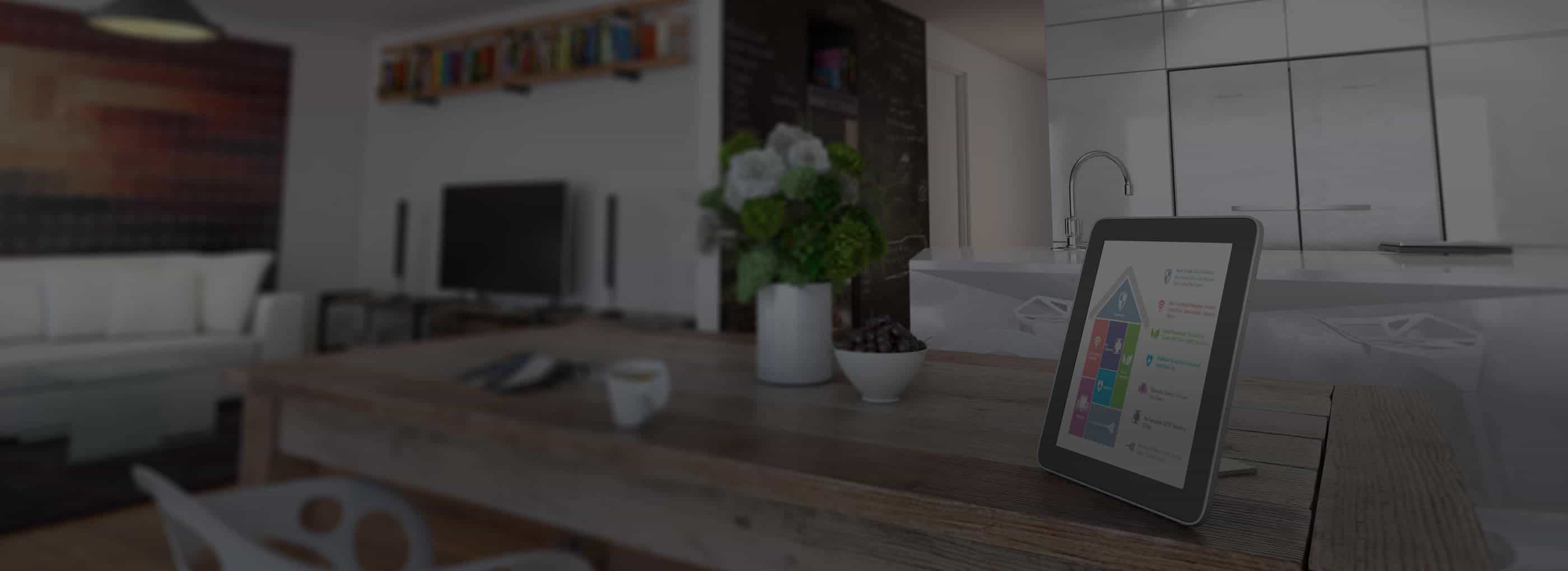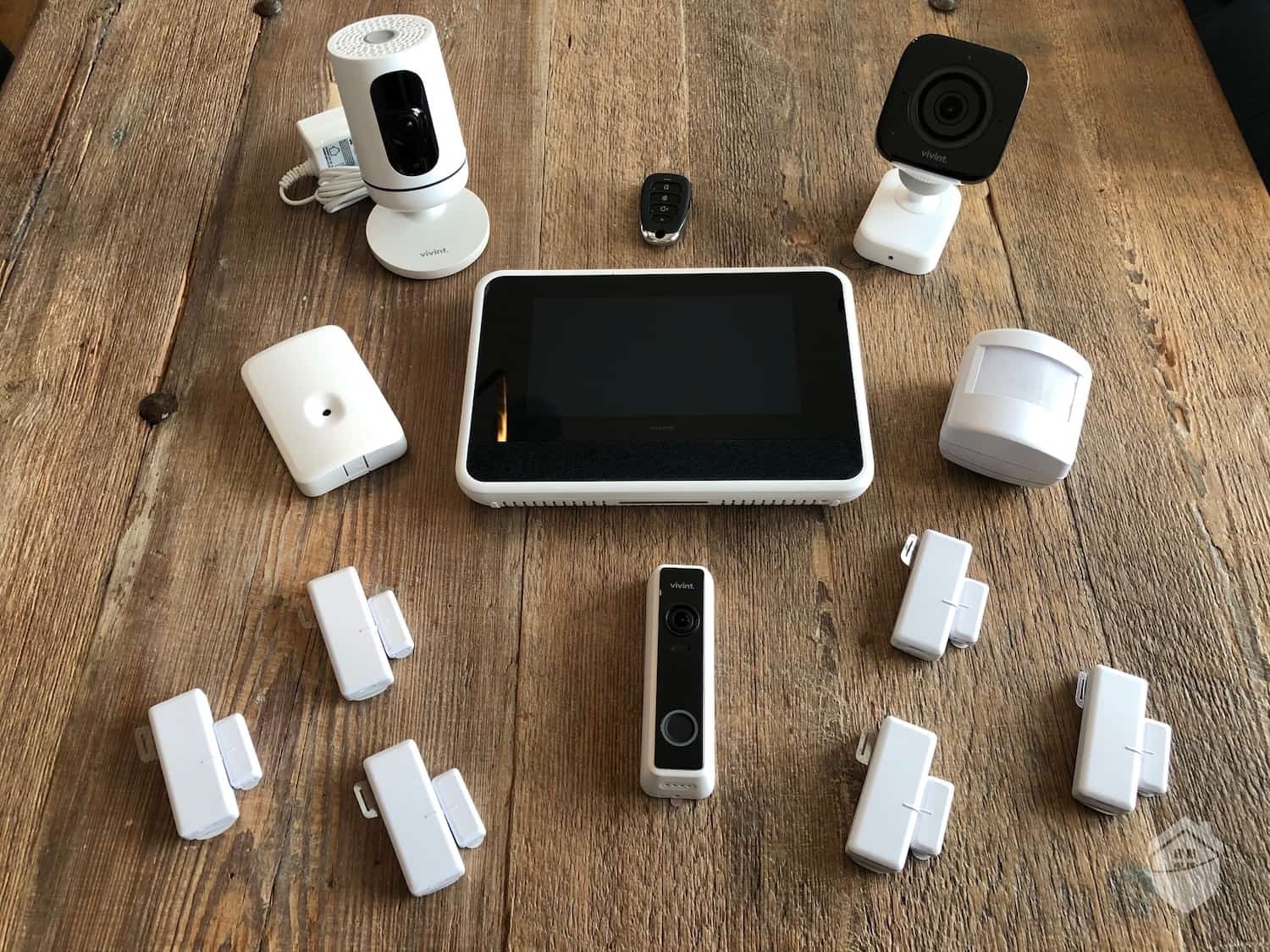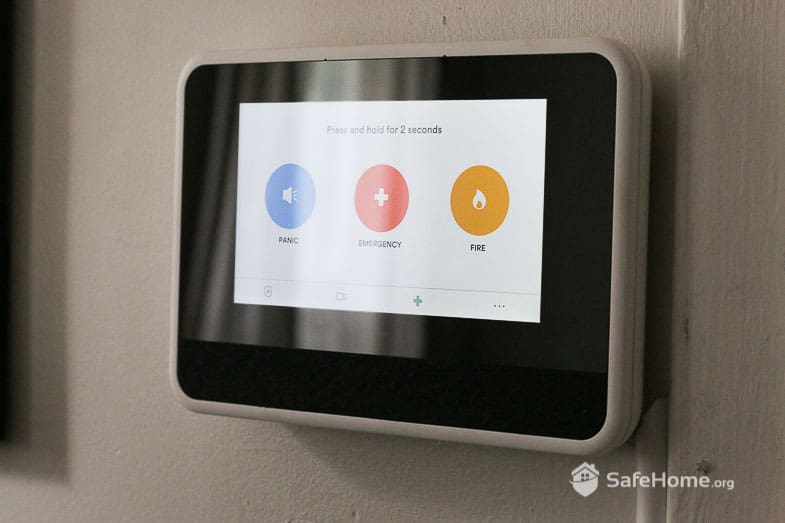It’s a dark and stormy night. After one too many lightning strikes, you lose power. You light some candles, huddle up under a blanket, and wait. Then you hear a crash. Someone is breaking in — and your alarm is offline. Could that scary story become a reality? It depends on your home security system.
If your home security system connects to a landline or cellular network, good news: This scenario will remain firmly in the realm of fiction. When the power goes out, your alarm stays online.
If your wireless home security system connects via Wi-Fi alone, we have some bad news: It won’t work without electricity. A power outage really will leave you and your home vulnerable.
Which kind of home security system do you have? Is there anything you can do to stay connected? How worried should you be? I have the answers to all that and more, so let’s dive in.
Why Losing Home Security During a Power Outage Matters
A power outage is exactly the wrong time for your security system to stop working, because a blackout is no secret. Everyone will know the power is out and homeowners may have evacuated — including criminals, who may seize the opportunity to break into affected homes.1Keeping your security system up and running is one important way to burglar-proof your home.
If an extreme weather event cuts off your power, you have more than home invasions to worry about. You’ll want your smoke alarm and water-leak sensors now more than ever.
>> Read More: The SafeHome.org Emergency Prep Guide
You’ll also want footage of your home. Let’s say a piece of debris whips by, dents your car, and gets carried away by the force of the wind. Without a working security camera, you’ll have zero proof to send to your insurance company.
How Common Are Power Outages?
A blackout cutting off your security system sounds scary, but is it likely? As it turns out, yes! The average American experiences 1.42 power outages a year2— and that number may be on the rise thanks to climate change. Extreme weather is the most common cause of power outages.3 Blizzards, hurricanes, thunderstorms, wildfires, and heat waves can all overwhelm the electrical grid.
>> Read More: Our Guide to Winter Weather Safety
Other acts of God, human, and animal can also cause a power outage. In July 2023, some Tulsans lost power when thieves stole copper from electrical wiring.4That same month, a snake slithered into a transformer and plunged 19,000 Alabamans into darkness. 5
There is one more scenario security-minded homeowners should be aware of: an intentional power cut. A savvy intruder could intentionally sabotage your connection to the electrical grid before attempting to enter your home. It’s frightening, but rare. (Don’t worry too much about it unless you’re James Bond.)
Pro Tip: Watch out for partial power outages too. Your home security devices and Wi-Fi router could lose power without you noticing.
How Will a Power Outage Affect Your Home Security System?
When that lightning strike, coiled snake, or coordinated attack by mysterious forces cuts off your access to electricity, it may affect your home security system. But how, exactly?
Power
First, anything plugged in or hardwired to your home electricity will lose power. That includes your home security keypad, cameras, and sensors.
Don’t freak out yet. Any home security device worth its price tag will come with a battery, either as its main power source or as a backup. That should keep it up and running for some time, but how much time depends on the device. A Vivint Sky Control keypad will last four to 24 hours, while an Arlo Keypad will last 12 hours.
Did You Know? The average power outage lasts more than seven hours.6
Many devices, of course, are powered by batteries. Ring cameras fall into that category. You don’t need to worry about them, since the batteries don’t care whether you’re connected to the electrical grid.
To figure out how a power outage will affect your home security system, the first step is to check how long the batteries will last.
Connection
For most of us, the problem won’t be our home security devices per se — it’ll be our Wi-Fi router.
Arlo, Ring, SimpliSafe, and Vivint systems (just to name a few) primarily run on Wi-Fi. They send messages like, “Hey, that door is open!” and, “We’re set to away mode now!” over the airwaves to your mobile device. But when the power blinks out, so does your Wi-Fi. Your devices can’t talk to each other anymore.
If that happens, the best cellular home security systems will switch to plan B. Your devices will connect to 4G and your home security coverage will remain undisturbed.
If you have an old-school security system, a power outage won’t disrupt your coverage. Landline connections, although outdated and rare, work great in power outages. (That’s assuming the storm didn’t take down the phone lines, of course.)
Did You Know? Traditional analog voice communication technology is often called POTS: plain old telephone service.
Cast your mind back to when you installed your home security system. Did you plug in your Wi-Fi password? Subscribe to a cellular data plan? Do some actual hardwiring? That’ll tell you whether your system will stay online without power.
How Different Security Systems Handle a Power Outage
Any decent security system will retain some functionality without electricity. The question is how, and for how much. Here’s a rundown of how the major security brands handle a power outage.
Arlo, Ring, SimpliSafe, and More
Because wireless security providers can’t depend on landlines in a power outage, they had to come up with a different solution. Arlo, Ring, and SimpliSafe connect to a cellular network if they lose connection to your Wi-Fi router — if you pay a monthly fee.
| Subscription plan that includes cellular backup | Cost per month | |
|---|---|---|
| Abode | Pro | $22.99 |
| Arlo | Safe & Secure Pro | $24.99 |
| Ring | Ring Protect Pro | $20 |
| SimpliSafe | Standard | $19.99 |
Let’s be real: It’s annoying that you have to subscribe to get a basic safety feature. On the bright side, you’re paying for more than just cellular failover. The best monitored home security systems include 4G backup; same deal with our favorite cloud storage security cameras. That $20 a month could cover cell service, professional monitoring, and several gigs of storage.
Vivint
Vivint security systems are cellular first, Wi-Fi second. That means your pricey package already comes with cellular failover.
ADT
For the vast majority of Americans, landlines are a thing of the past. The 27%7who still use them, however, can connect their security systems to their phone line. ADT is one of the last major home security companies that offers this option. Most of its competition has gone fully wireless.
Security systems that connect to a landline have one edge over home security systems without a landline: They won’t go offline when the power goes out. Your traditional ADT system will keep running until its batteries run out of juice, assuming the extreme weather didn’t take down the phone lines too. If that happens, your traditional ADT subscription will switch to cellular service, just like the other guys.8
Wyze
Subscription or no subscription, Wyze doesn’t offer a cellular backup option. If you want your home security system to work during a power outage, you’ll have to fire up the generator.
How to Keep Your Home Safe During a Blackout
You are not powerless in the face of a blackout, brownout, or temporary outage. There’s a lot you can do to keep your home safe — as long as you do it before the power goes out.
You can choose a home security system that works without power. It’s 2025 — you have plenty to choose from. Don’t believe me? Check out our picks for the best battery-powered home security systems.

The Arlo Pro 4’s battery housing
If you want to stick with your cellular-failover-free security system, you have other options. Pick up an uninterrupted power supply (UPS). It’s exactly what it sounds like: When the power goes out, a UPS provides a backup supply for a few hours. What does that have to do with your wire-free home security system? You can connect your Wi-Fi router to the UPS, so your sensors, cameras, and alarms will remain online if the power goes out.
>> Related reading: Will a Wireless Security System Work in a Power Outage?
You can get a cheap, serviceable UPS for about $50. A decent generator will cost about 10 times as much, but it will buy you days — not hours — of power. The electricity will keep your Wi-Fi — and security system — up and running.
Pro Tip: There’s one alarm that will never turn off when the power goes out: your dog. A growling, barking husky (or chihuahua) can deter intruders. “Dogs are a deal breaker for me,” one convicted burglar told KGW8.9 That said, the best home security systems for pet owners will stay on in a storm — so your dog won’t have to face the bad guys.
The Takeaway
Let’s face it: When the power goes out, your home is vulnerable. You have to face whatever took out the electrical grid. Don’t face it alone. Keep your alarm online.
How do you make sure your home security system is up and running? Pick a home security system that doesn’t depend on the electrical grid in the first place. Look for a battery-powered system that connects to the cellular network. If that’s not an option, make sure you have backup power. A USP or generator should do the trick.
Whatever you do, don’t wait until the next power outage. Make sure your home is safe before lightning strikes.
FYI: SafeHome is now livestreaming! Got questions about home security? Email us at info@safehome.org, and we’ll answer your questions live on our next stream—personalized advice, straight from the experts. Find us on YouTube @safehome_org. Don’t miss out!







